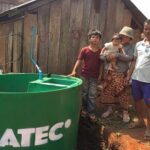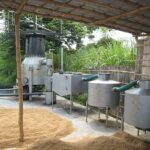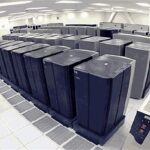Many cleantech startups in Asia have become a focal point for leading investors in western and European countries. With annual sales in excess of $56 billion, it’s clear that clean technology is rapidly gaining ground in Asia [1]. And the countries in this part of the world are in dire need of it too.
Asia has a total population of over 4.4 billion. It is home to at least one in every two people on this earth. Yet, a vast majority of them do not have access to the basic necessities of life. According to a UNICEF report, more than 135 million people in Asia drink from contaminated water sources [2]. Nearly one billion people do not have electricity in their homes, assuming they have a decent shelter to call home in the first place. What’s more alarming is that several countries in the region are heavily dependent on agriculture. Still, the deforestation rate is higher in Asia than anywhere else in the world. Moreover, many economies, both big and small, regularly suffer huge setbacks due to natural disasters like floods and earthquakes. However, on the brighter side, cleantech startups in Asia are finally stepping up to combat its environmental issues.
Here are some of the emerging green businesses in this continent that you need to watch out for.
1EcoWorth Tech
EcoWorth Tech is a Singaporean company that came into existence in 2016. It was created as a spin-out from the country’s oldest public autonomous research institute, Nanyang Technical University. Developing waste-to-worth solutions is the legacy that EcoWorth Tech carries forward.
The company specializes in transforming waste materials into reusable products for chemical processing, oil & gas, and food production plants. However, it’s most recognized for Carbon Fibre Aerogel, a custom-engineered material that helps clean liquid industrial waste so it can be safely discharged into drains without any risk of health or environmental hazards. The product itself is made by recycling items such as paper and food waste.
EcoWorth Tech had a seed fund of just over $777,000 but has successfully captured a multi-million-dollar opportunity pipeline in less than five years. It has achieved a $4 million grant support for expansion into China and won the United Nations’ award for the best new business in Energy and Environment category [3].
2ATEC
ATEC is a five-year-old startup in Cambodia that works in partnership with an Australian enterprise. The company produces small-scale biodigesters for low-income households in the rural parts of the country. ATEC has earned a prominent name in the cleantech industry. And it’s easy to see why. The small business not only identified but also successfully solved a major issue faced by hundreds of thousands of families in villages across Cambodia and Asia at large.
Using traditional methods like wood-burning to cook food has adverse effects on the environment. Not to mention, the smoke produced is harmful to health as well. ATEC eliminates both problems with its biodigester system that treats animal manure, human and kitchen waste in a large on-site tank to provide the respective house with a steady supply of environmentally-friendly biogas. Additionally, the treated waste can be used as organic fertilizer. One biodigester is said to produce enough gas for all daily cooking needs. And it provides fertilizer for up to 1.5-hectare fields.
3Husk Power Systems
Established in 2008, Husk Power Systems is known for pioneering off-grid power generation and distribution solutions for rural communities in Asia as well as Africa. It holds the title of being the first Indian company to use only biomass gases to generate 100% clean and renewable energy. This aptly named company uses rick husk to power local households and even small businesses. So far, it has installed more than 85 power plants in 300+ villages across Bihar, India. The company also operates in Tanzania and has offices in Colorado, USA.
Husk Power Systems’ proprietary power generation technology saves more than 15,000 tons of carbon dioxide emissions every year. It impacts at least 200,000 people, improving their living standards with its reliable end-to-end energy solutions.
4Cleverheat
Cleverheat is based within the Philippines and is one of the most promising cleantech startups in Asia. Founded in 2017, the company focuses on providing renewable energy design, analysis, and monitoring services for refrigeration purposes. Since it aims to reduce the world’s carbon footprint, it utilizes only solar-powered control for cooling.
Post-harvest misfortune for farmers is the main problem that Cleverheat seeks to overcome. In the Philippines, farmers tend to suffer heavy losses if the seller fails to pick up the harvest, particularly vegetables, on time. Besides the financial losses to the farmer, the issues of waste management and nourishment security also arise.
Cleverheat makes refrigeration accessible and more affordable to farmers by integrating renewable energy solutions with storage options. The company also serves other small businesses in need of such services, for example, those in the fishing industry.
5Eco2 Green Data Center
Eco2 Green Data Center is a Malaysian-based startup that manufactures eco-friendly equipment for data centers. Its mission is to counteract the damaging effects of high-power-consuming systems. And it is effectively doing just that with its unique technology systems that can be submerged in a coolant rather than require a separate cooling unit.
The equipment produced by Eco2 Green Data Center is known to help businesses cut back on their energy costs by almost 50%. It also helps reduce carbon emission while improving server function and lifetime by 30%.
When it comes to the emerging cleantech startups in Asia, this list barely scratches the surfaces. Various green businesses are making a positive impact locally and globally by acting as key drivers of innovation and development in the clean technology sector. It won’t be an exaggeration to say that India’s cleantech ecosystem is almost at par with that of high-end industries in countries like Singapore. The country is at the cusp of real transformation as startups like EcoCase, Oorjan, Log 9, and OxyGarden continue to make India self-reliant and sustainable.
References:
[1] https://www.financierworldwide.com/cleantech-investment-in-asia#.YCI6G7AzYdU
[2] https://www.unicef.org/rosa/water-sanitation-and-hygiene-wash










